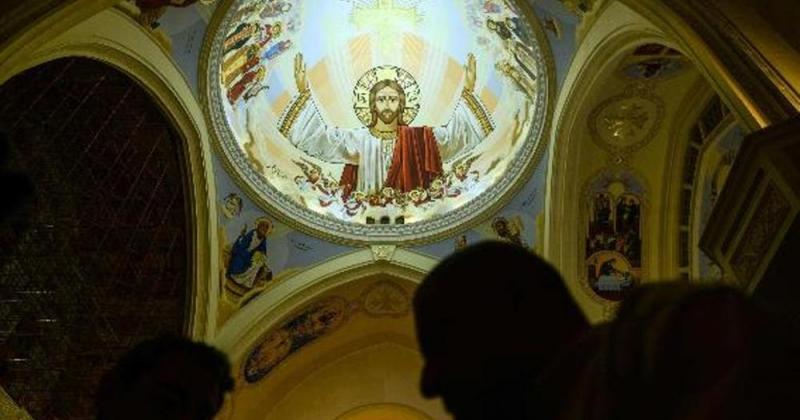For Lebanese professor Antoine Courban, invited to the recent conference on citizenship promoted by al-Azhar, Islamic culture is attempting to make an epochal turn.
In his apartment on the first floor of a modern building in the heart of Ashrafyyeh, Beirut’s “Christian Quarter”, Antoine Courban, professor at Saint Joseph University, a historical Jesuit establishment in Libanon. Among Byzantine icons and Koranic commentaries, the professor is anticipating Pope Francis’ arrival to Cairo.
“To understand the scope of an event, it is necessary to place it in its context. And the context in which this journey will take place is certainly marked by the double attack against the Coptic Catholics Churches and their faithful. An attack? No, I would rather say an act of war. But what war? The war declared by fundamentalists to moderates, to all moderates. One wonders how a war can be declared to moderate Islam and then occur with the shedding of Christian blood. My answer is simple: because by opening the recent Cairo conference on citizenship, the great al-Azhar imam said it is time to challenge fanaticism and extremism that use religion as a mask hiding a real cultural clash, and has pointed out how to do it. The terrorists understood and transferred the combat on their ground, striking the weak side, the enemy’s tender meat, the Coptic churches and their faithful.”
Can you further explain? If the act of war is clear, it seems like an act of war against Christians, called “infidels”...
“To answer, I must return to the conference promoted by al-Azhar just before the massacre. And to better understand we have to start with a word. This word is “umma”. Everybody knows this word. Throughout history, this word was used to indicate the community of Muslim faithful, in a religious sense. “Umma” refers to an “ecclesia”, or a universal religious community. Then it was used with an ethnic sense, the Arab ummah, that is, the community of all Arab peoples. These two concepts of umma, religious or ethnic, have shaped the two prevalent political currents: Pan-Islamism and Pan-Arabism. In the document issued at the end of the recent al-Azhar conference, to which I participated with other 200 foreign guests, 60 of whom were Lebanese like me, there is talk of a different kind of umma. This time based on neither religion nor Ethnicity, but on geography: the umma of the homeland, that is, the community of those who live a territory. It is crucial to read the first article in al-Azhar’s statement, where there is talk of “equal rights of Muslims and Christians in their countries, considering them as a nation / umma.” But that’s not all. Article 6 states that the goal is to promote a new partnership, “a new contract among citizens of Arab countries, of Muslim, Christian or other faith.” This contract is based on “mutual recognition, citizenship and freedom”. The statement emphasizes that all this is “a vital necessity” and specifies that everyone in the common homeland be subjected to a constitutional dictate. And constitutions, as we know, are not written by theologians. It’s a very important passage. In the final paragraph, it is stated that in this country founded on a Constitution “our goal, living on the same boat and being part of the same society, [....] is to ensure a better future for our children and our daughters.”
Is it here where the equality between man and woman is indicated?
“As you see, we are talking of historical, epochal novelties: for centuries we have been trying to shape the concept of citizenship in our societies, common citizenship without distinction of gender, ethnicity, and faith. The concept of nation, a word that in Arabic did not exist until the nineteenth century, was interpreted in ethnic or religious terms. Now the most prominent Sunni institution, al-Azhar, has mold it in geographical terms, those of the common homeland, where to live together as equal, without ethnic or religious ranking, and, it appears, gender. That is why al-Azhar’s imam, Ahmed el-Tayeb, wanted to talk about cultural challenges, and it can be understood why the hateful attacks against the Coptic Churches are a fanatical act of war against all moderates. I would like to emphasize one last aspect, very important to me. This text, edited at the end of the March conference, which lays the foundations for the peace conference to which Pope Francis is to attend, was read before all the delegates and guests by the Great Imam himself. Some al-Azhar conservative ulema, that is, part of what we might call the al-Azhar Curia, would have preferred a speaker to read the document and not the Great Imam, probably with the intent to de-emphasize the binding value of the text. However, Imam Ahmed el-Tayeb insisted, he wanted to read it personally, and I think that this carries a tremendous meaning. The Pope’s journey to Cairo arrives in the wake of this, in a context in which moderate Islam says there are no ethnic or religious minorities, but citizens. And Cardinal Rahi, coming back from Cairo, said this very well: we are no longer minorities. “
Do you believe that Lebanon has played a role in this?
“I observed the guests at the March conference: among 200 foreign guests, 60 are Lebanese. I believe that Lebanon of “living together, not just to co-live among communities together, but to live together, to bond through citizenship, constitutes the conceptual core, the starting message of this meeting that will continue at the end of the month in the presence of Pope Francis » .
